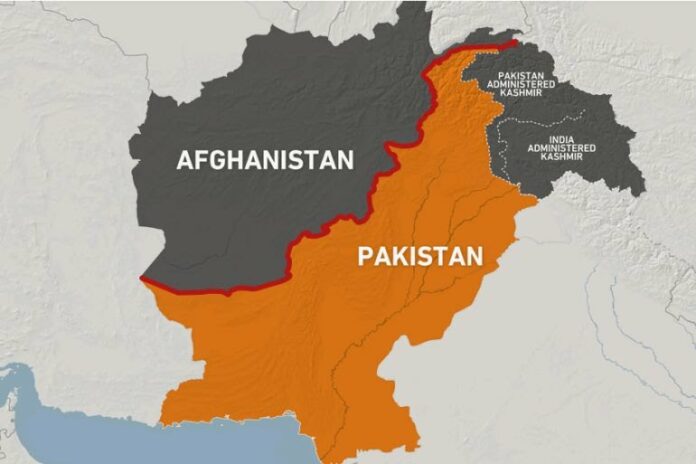International: Tensions flared across the Afghanistan-Pakistan border after Taliban and Pakistani forces exchanged heavy fire, days after an air strike on Kabul, which the Taliban blamed on Pakistan. The escalating conflict has drawn regional concern, with Iran, Qatar, and Saudi Arabia urging both sides to exercise restraint and return to dialogue.
According to Enayatullah Khwarizmi, spokesperson for the Afghan Ministry of Defence, Taliban forces launched “successful retaliatory attacks” against Pakistani troops in response to what they termed as “repeated violations” of Afghan territory. Khwarizmi stated that the operation concluded at midnight, calling it a justified response to Pakistan’s air strikes.
Pakistan’s Interior Minister Mohsin Naqvi denounced the Taliban’s actions as “unprovoked,” asserting that Pakistani forces had responded “with a stone for every brick.” He accused Afghan forces of targeting civilians, calling it a “blatant violation of international law,” and praised Pakistan’s military for its “prompt and effective response.”
According to Radio Pakistan, the Afghan attacks were carried out at six different border locations, prompting what it described as a “strong and intense response” from the Pakistan Army. The report shared visuals of artillery and gunfire lighting up the night sky but did not confirm whether the clashes had ceased.
The confrontation follows a series of explosions in Kabul earlier this week, which the Taliban attributed to Pakistan. While Islamabad has not claimed responsibility, it has accused the Afghan Taliban of sheltering Pakistani Taliban (TTP) militants, who allegedly receive support from India—a charge that New Delhi has firmly denied. The Taliban, in turn, maintains that it does not allow its soil to be used against any country.
Amid the mounting crisis, Iran’s Foreign Minister Abbas Araghchi urged both nations to show restraint, emphasizing that stability between Afghanistan and Pakistan is vital for regional peace. Qatar’s Ministry of Foreign Affairs also voiced “deep concern,” calling for dialogue, diplomacy, and de-escalation to prevent further instability.
Saudi Arabia echoed similar sentiments, calling for “restraint, dialogue, and wisdom” while reaffirming its commitment to regional peace. In a statement, Riyadh expressed its support for “all efforts aimed at promoting stability and prosperity for the brotherly peoples of Pakistan and Afghanistan.”
The situation remains volatile, with no official confirmation of a ceasefire. Analysts warn that if tensions continue to rise, the conflict could have far-reaching implications for regional security and diplomacy in South and Central Asia.
Read More: IED Found and Safely Defused at Umsning Market in Ri-Bhoi District

